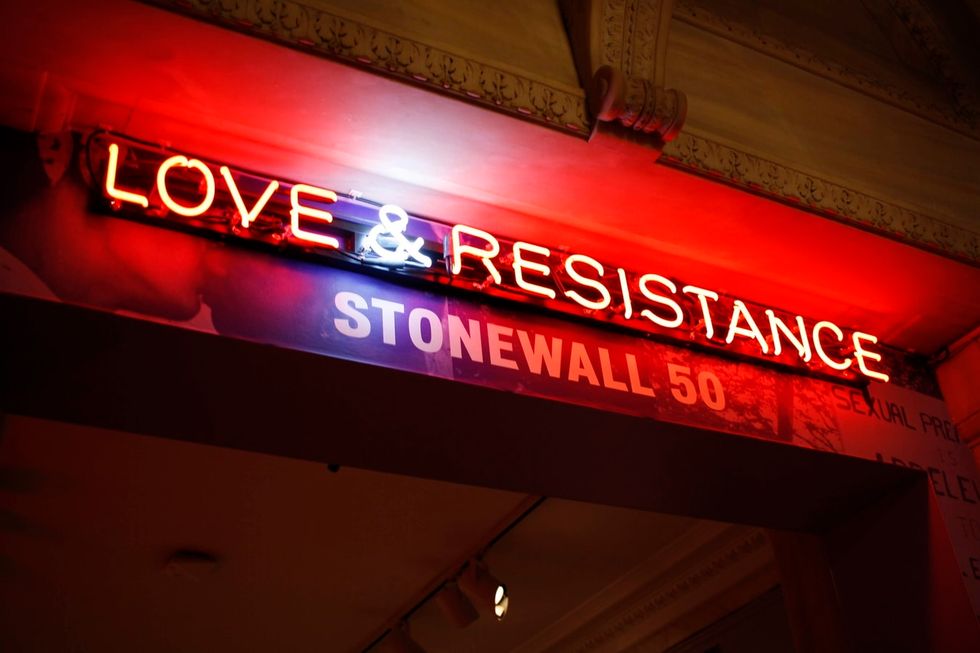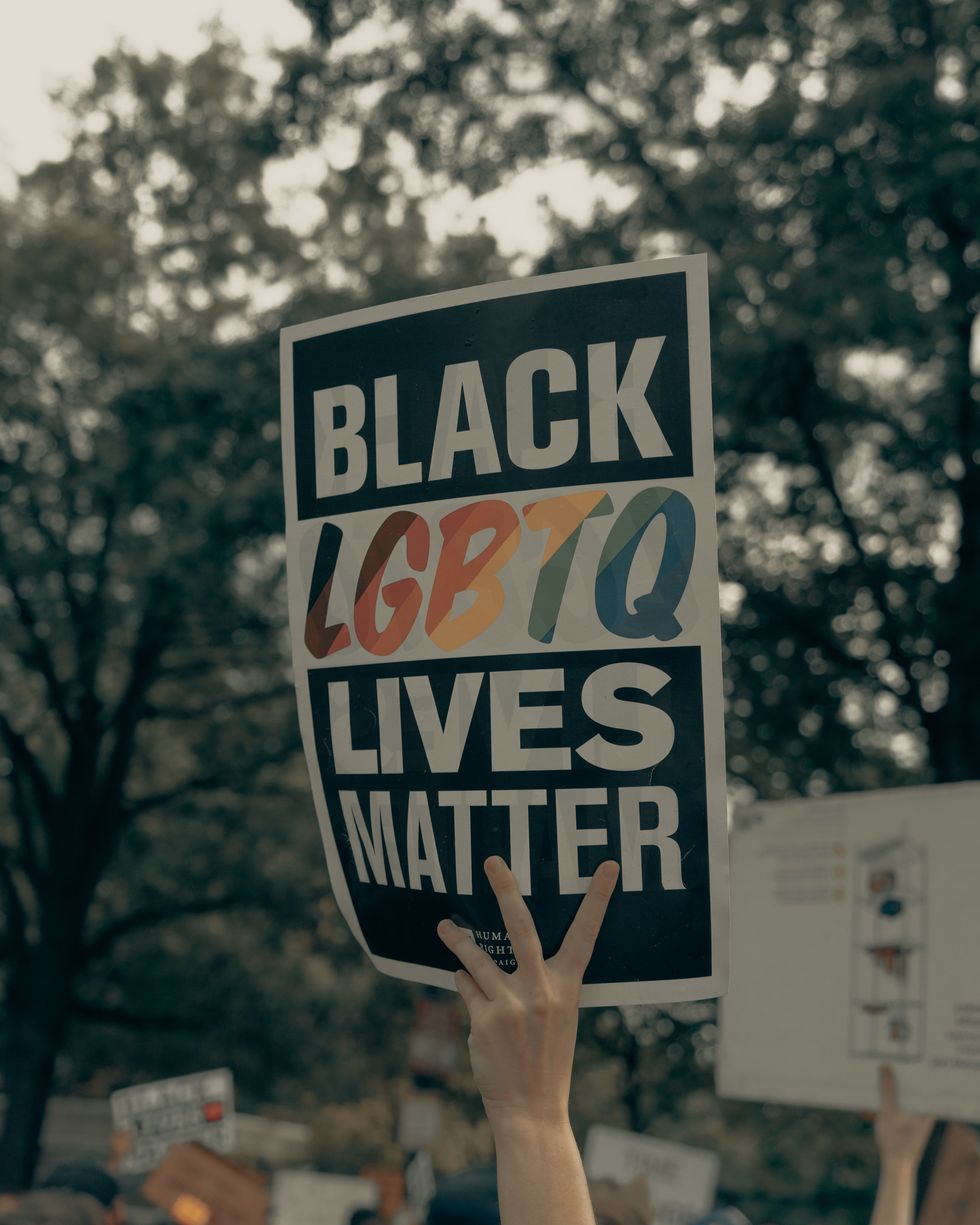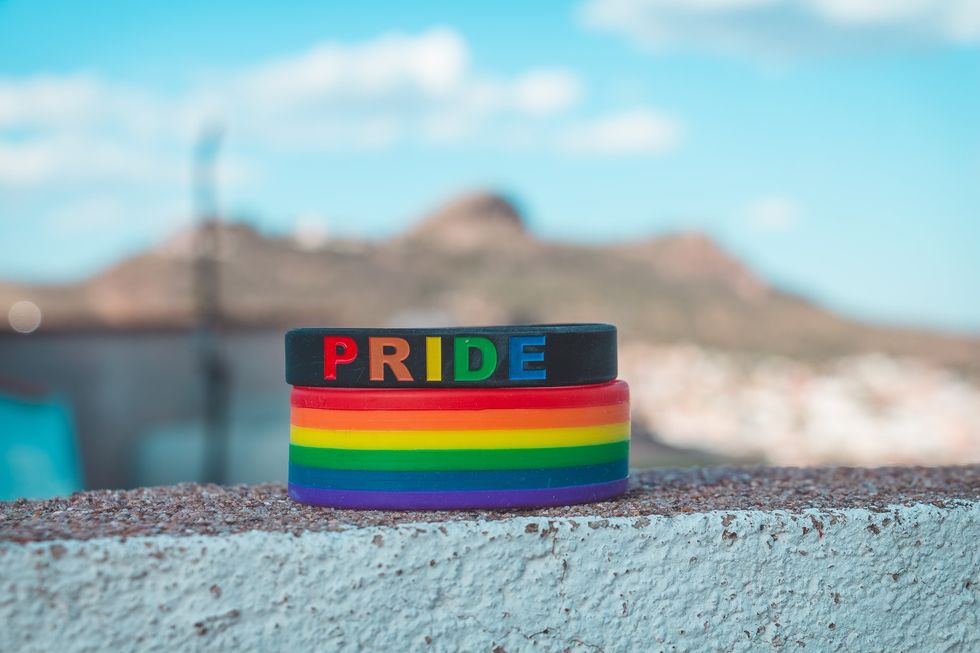I am lesbian.
I am black.
I am proud.
The shadows of hate that creep behind people like me and attempt to swallow us whole in dark gravities of negativity will not have power over me—over us—anymore.
It is June. This is pride month and now more than ever I am tired of the censorship of my voice in the mainstream; tired of outsiders cleaving apart my existence as a black lesbian and telling me to 'pick a side'. However, I cannot merely separate my blackness from my gayness because they exist together and make me who I am—my existence is intersectional.
The theory of intersectionality analyzes the sociopolitical and economic effects of belonging to multiple marginalized communities in relation to discrimination on a systemic and personal level.
Another way to look at this is that the racism I face directly plays into the homophobia I face and vice versa. There is another layer of hate and disenfranchisement that someone like me faces in society that someone who is only gay but not POC or black doesn't.
In 2020, amid a global pandemic and the brewing of civil unrest and disenchantment with the American national government and its current execution of law enforcement, intersectionality has yet again been given a spotlight for conversation.
There has been a shocking increase of condemnation of the BLM protests on online platforms such as Twitter and Tiktok from the LGBTQ community. Specifically, the disapproval arises from white LGBTQ identifying members. Most people who share this sentiment do so out of ignorance and media misinterpretation rather than intentional malice.
The media paints the movement as being a chaotic riot or even in the words of the sitting president as being full of 'thugs' which all aid in thwarting the true purpose of the BLM movement by veiling it in evil degeneration.
However, for any nonblack or POC LGBTQ person to shun the BLM movement not only rejects the call for justice for black people in the LGBTQ. community but also spits on the same efforts and tactics LGBTQ leaders of the past used to gain the gay rights enjoyed today. Ignoring the intersectionality of the BLM movement hurts the LGBTQ community
The first pride was a riot. This is something that high school education didn't teach and is limited to LGBTQ and gender specific courses in most colleges. The 1969 Stonewall Riots jump started the modern gay rights movement. The leaders in those riots were also all POC and black trans women and butch lesbians like Marsha P. Johnson. The inception of the gay liberation movement would not have happened without people of color.

Disapproving of Black Lives Matter protests is disapproving of gay rights because both excelled their cause through protesting and integrated black and POC voices. Without the Stonewall riots LGBTQ people would not be where we are today.
On the other side, there has also been a denial of intersectionality in the BLM movement. I have engaged with black people who see LGBTQ rights as either an entirely separate entity or who outright scorn black LGBTQ people through homophobia. This is frustrating for someone like me who is black and gay and seeing both of my communities denying and/or ignoring a crucial aspect of my existence. How can a person march and scream black lives matter but then subsequently exclude intersectional black lives and fight for their oppression?
If that is the case then it should be rebranded as heterosexual and cis black lives matter. Denying black people like me from being part of the movement means one does not care for all black lives but rather a very specific type of black life—and that rhetoric will always be part of the problem in the strive toward equality and justice.
Being gay and being black is not mutually exclusive nor are their movements, ideals or goals. Both communities have members that exist at the intersection and denying any single one of their voices outright undermines the validity of the meaning behind each movement. Black lives will not matter until all black lives matter—the gay, the straight, the disabled, the mixed and the Muslims and Christians etc. The LGBTQ community cannot experience true equality while advocating against specific groups in it from experiencing the same desired equality elsewhere.
We live in an intersectional reality and choosing to ignore the fact is a privileged fallacy that many others in this country will never get to enjoy.























